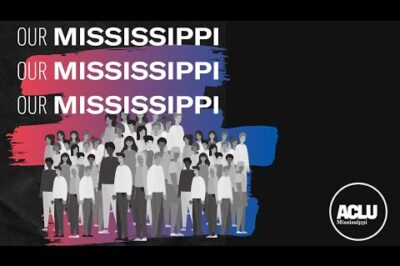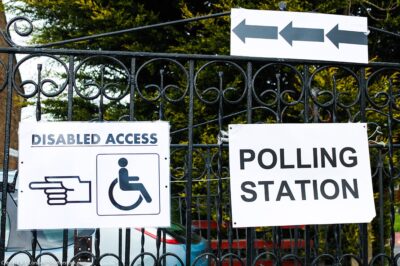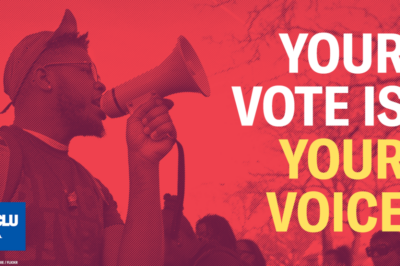Fate of Election May Hang on 20,000 Voters in Palm Beach County, Not Florida Recount, ACLU Says
FOR IMMEDIATE RELEASE
MIAMI–Twenty-thousand voters in Palm Beach County, not a handful of chads, could well determine the outcome of the presidential election, the American Civil Liberties Union said today.
In a case that could reach the U.S. Supreme Court, the ACLU is asking an appeals court to set aside a Florida judge’s opinion rejecting requests for a new election in Palm Beach County in response to allegations of widespread voter confusion that could easily have affected the outcome of the election.
In his Nov. 20 ruling, Judge Jorge LaBarga of Palm Beach County Circuit Court said that the court was without power to order a new election because Congress has provided that presidential elections be held “on the Tuesday after the first Monday in November.”
“This ruling is absurd and must be challenged,” said Ira Glasser, Executive Director of the ACLU. “Under Judge LaBarga’s reasoning, the court would be powerless to order a remedy once Election Day is over, even if someone willfully destroyed 20,000 ballots for either presidential candidate. That is not and should not be the law.”
The issue before Judge LaBarga — in which the ACLU filed a brief and argued in court — was the unique “butterfly” ballot design used in Palm Beach County. The ballot was apparently so irregular that it confused large numbers of voters and result in unusually large numbers of votes being disqualified or wrongly cast.
Because Judge LaBarga rejected the Palm Beach County voter lawsuits on federal grounds, the ACLU said, the voters could ultimately appeal their case to the U.S. Supreme Court.
The ACLU’s friend-of-the-court brief, filed today, urged the appeals court to order an appropriate remedy, which could include a county-wide revote. A ruling in favor of a revote, if affirmed by a higher court, could set aside the current recount in Palm Beach County.
In its brief, which cites 48 separate voting rights cases as well as state and federal Constitutional law, the ACLU said that the court has “the broad discretion to order a new election for all eligible voters in Palm Beach County, or limit the election to those who had actually cast ballots in the November 7 election.”
“If systematic irregularity affected the outcome of the election, as appears to be the case in Palm Beach County,” said Howard Simon, Executive Director of the ACLU of Florida, “then those who bothered to vote on November 7th deserve a new election — one that correctly represents the will of the people — however distressing it may be to those wanting a quick resolution to the presidential election.”
Requiring a new election or some related remedy, the ACLU said, is “merely a continuation of the election process,” and is constitutionally required when fraud or irregularity may have affected the outcome of the election.
Over the years, the ACLU has routinely represented voters and candidates in election contests in order to protect the right to vote and the right to participate in an election process that is fair, without regard for partisan interests and concerns that might have been involved in the elections.
The new ACLU brief was filed in the District Court of Appeal for the Fourth District of Florida. Attorneys in the case are Laughlin McDonald, Neil Bradley, Cristina Correia and Bryan Sells of the ACLU Voting Rights Project; Steven R. Shapiro of the national ACLU; and Randall C. Marshall and James K. Green of the ACLU of Florida.
The ACLU appeals court brief is available online at archive.aclu.org/court/fladell.pdf.
A news release and link to the ACLU’s brief in the lower court is online at archive.aclu.org/news/2000/n111400.htm.
Stay Informed
Every month, you'll receive regular roundups of the most important civil rights and civil liberties developments. Remember: a well-informed citizenry is the best defense against tyranny.




